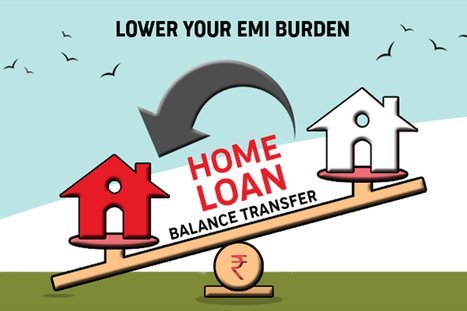Whenever you take a home loan, the interest rate payable on it and the tenure of the loan are the main determinants of the amount of equated monthly installment (EMI) you have to pay.
Here are some ways how a new or an existing home loan borrower can reduce the EMI burden of their home loan efficiently.
A. New home loan borrowers
To reduce your home loan EMI, the first thing you should do is to choose a lender which offers home loan at a lower rate of interest. However, exploring how you can take a home loan, and from which lender, can be a daunting task. Also, at times you might not be able to figure out which lender is offering a better home loan deal. Here are a few tips which can help you get a good deal on home loans and which in turn can help you in reducing your EMI payments.
1. Compare rates online
Nowadays, one of the best ways for home loan borrowers to check home loan offers is to go online. There are various websites, online portals which give summarised view of the rates of interest, fee and other charges of different lenders. Hence, before availing a home loan do your research to ensure you get the best deal.
2. Opt for longer repayment tenure on your loan
The longer the tenure, the lower will be your EMI payable every month. However, you should only opt for longer loan repayment tenures if you think you cannot afford to pay higher EMIs. When you opt for a longer tenure, you end up paying more interest on your home loan outstanding amount.
One should always calculate the tenure and corresponding interest rate options available to you before opting for a home loan. For this purpose, you can use ET Wealth’s home loan EMI calculator by clicking here.
Try to maximize your EMI payments but not more than what you can comfortably pay every month. So, choose the home loan tenure carefully as this impacts the amount of EMI you will have to pay every month.
3. Make a bigger down payment
As home loan lenders are allowed to finance up to 80-90 percent of the property’s value, those looking to avail a home loan have to contribute a minimum of 10-20 percent as a down payment. However, instead of arranging just the minimum down payment, it would be prudent to provide a higher contribution from your own pocket.
The higher you contribute as down payment, the lower your LTV ratio (The Loan-To-Value ratio means the ratio of a loan to the value of the property purchased) and loan amount required would be, which in turn enhances your loan eligibility and increases the chances of loan approval. But while trying to make a higher down payment, make sure you don’t overstretch your finances or hinder the achievement of other important goals.










